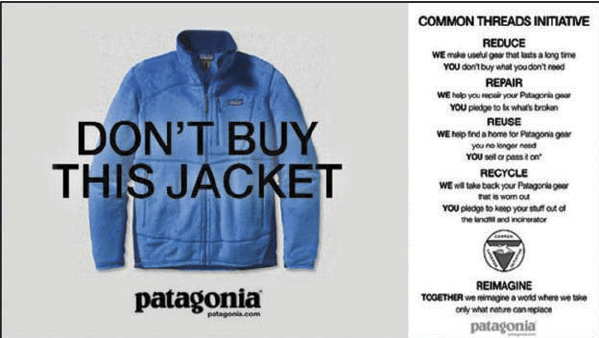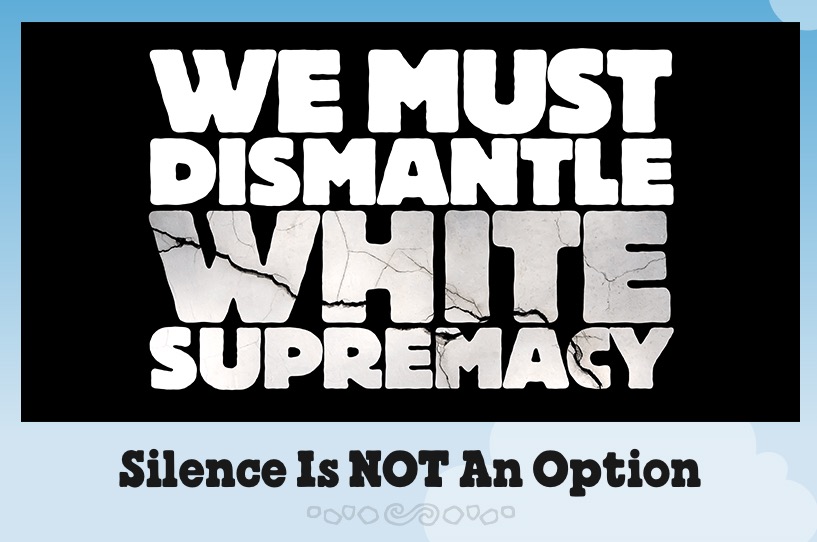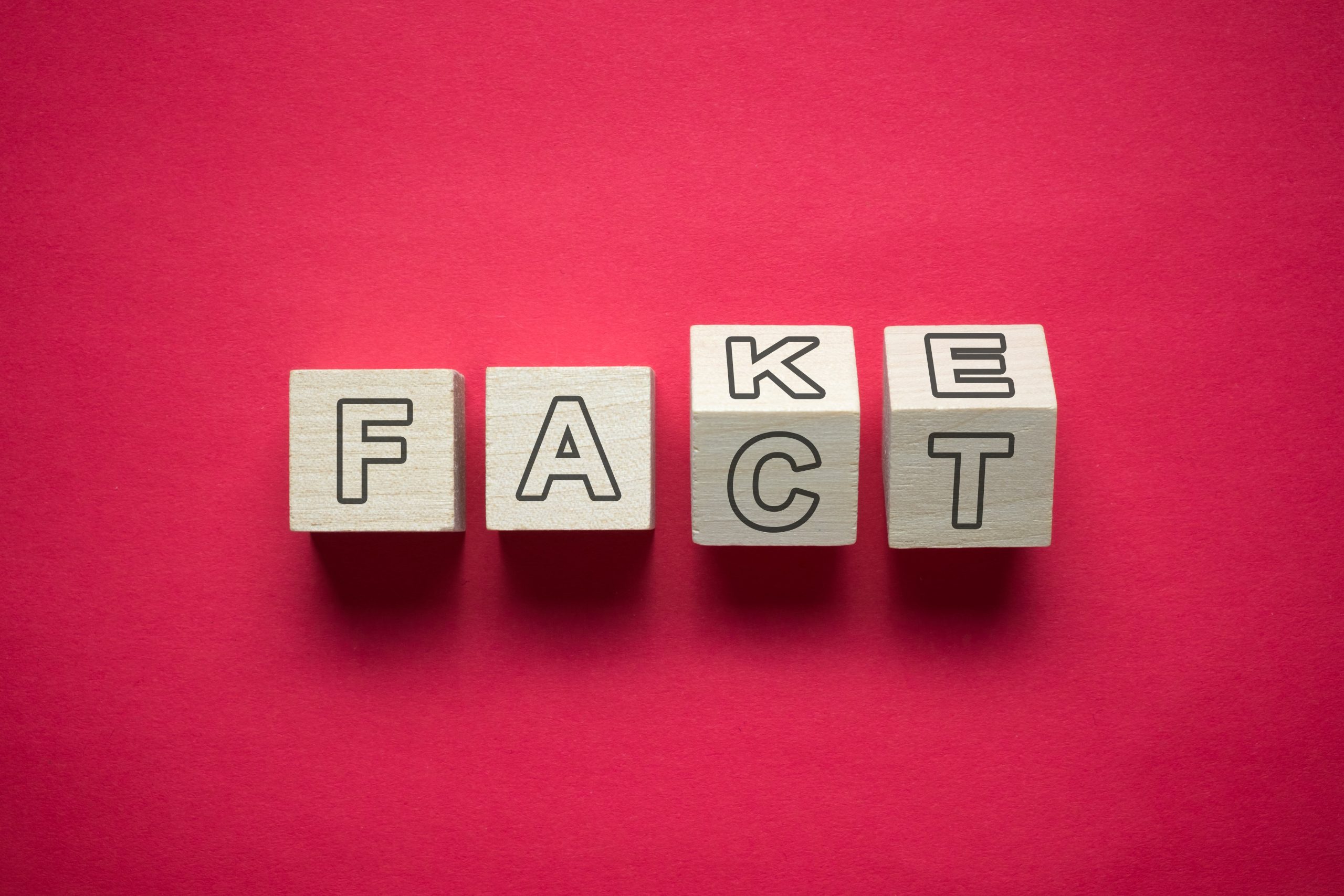3 brands that prove authenticity in marketing is paramount
What is authenticity in marketing? Authenticity in marketing is brands creating marketing strategies that reflect their core values even if these strategies go against the norms or business standards.
Lingerie brand ThirdLove doesn’t feature slim supermodels to sell its bras, outdoor clothing company Patagonia asks its customers to buy less on Black Friday and ice cream maker Ben & Jerry’s calls upon everyone to dismantle white supremacy which prompted thousands of people to accuse the company of being anti-law enforcement.
ThirdLove – To all women everywhere, we see you and we hear you
Founded in 2013, Third Love is producing and selling bras and underwear.
The company was the first bra and underwear brand to offer trademarked half-cup sizing and a mobile app allowing women to measure themselves at home.
It all began with co-founder Heidi Zak’s frustration with lousy bras and bad fits. That’s when she decided to build her own bra thus Third Love was born.
Third Love celebrates diversity; it’s one of the company’s main core values and it reflects in their marketing.
Just as the company designs their bras with real women’s measurements, their marketing campaigns and overall online presence feature women of all shapes and sizes.
Such a difference from Victoria’s Secret! The luxury lingerie brand was once the leader of the underwear industry. By 2018, due to a combination of dated business approach, oversexualized images and heavy competition, the brand’s market share had begun to shrink from 31% in 2013 to 24%.
Also in 2018, Third Love had a run-in with Victoria’s Secret over the interview that the brand’s CTO gave to Vogue Magazine.
In this interview, he basically said that Victoria’s Secret supports the woman as long as she portrays herself as the object of the heterosexual white male’s fantasies.
He also hinted toward Third Love by saying “We’re nobody’s ThirdLove, we’re their first love.” This prompted Heidi Zak’s reaction in the form of a full-page open letter published in the New York Times where she writes:
As you said Ed, “We’re nobody’s ThirdLove, we’re their first love.” We are flattered for the mention, but let me be clear: we may not have been a woman’s first love but we will be her last.
To all women everywhere, we see you, and we hear you. Your reality is enough. To each, her own.
View this post on Instagram
Patagonia – We’re in business to save our home planet
Patagonia is a clothing company that markets and sells outdoor clothing.
The company was founded by Yvon Chouinard in 1973 and considers itself an “activist company”. They’re in business to save our home planet and will use every resource at their disposal – their voice, business and community to solve the climate crisis.
The brand talks the talk and walks the walk. The company has a self-imposed Earth tax, 1% for the Planet, which it uses to provide support to environmental nonprofits working to defend air, land and water around the globe.
Since 1985, when Patagonia took this pledge, the company has donated over $89 million in cash. In 2019, it is estimated that the company had $800 million in revenues.
Patagonia is followed by almost 1,8 million people on Facebook and 4,6 million on Instagram. They are building a strong community online and offline.
The company’s marketing strategy is to support its activist-led campaigns (like the company’s anti-Black Friday ad Don’t buy this jacket). To achieve this goal, Patagonia uses storytelling to turn consumers into activists. Its online presence features only a few scattered sales posts.

Ben & Jerry’s – Democracy is in your hands
Ben & Jerry’s manufactures ice cream.
It was founded in 1978 by Ben Cohen and Jerry Greenfield, hence the company name.
The company’s mission is to create prosperity for everyone that’s connected to its business: suppliers, employees, farmers, franchisees, customers, and neighbours alike.
They care about a wide range of issues from racial justice to fairtrade, democracy to LGBT equality.
Why does an ice cream maker care about political and social issues?
In an HBR piece published earlier this year, Ben&Jerry’s CEO Matthew McCarthy answered this when asked about the company’s core commitment to speak out on issues they feel strongly about:
We do these things not to sell more ice cream but because we care about people and have values. All businesses are collections of people with values; it’s a force that’s always there. {…} I believe that increasingly, in a world of hyper-transparency, if you’re not making your values known publicly, you’re putting your business and brand at risk.
The latest reports on consumer behaviour are highlighting that fact that most consumers (86%) want brands to take a stand on social issues and they would also purchase a product because a company advocated for an issue they cared about (87%).
What consumers are asking brands today is not what do you stand for but what do you stand up for?

Here is Matthew McCarthy’s recommendation for companies looking to make activism part of their core values:
If you don’t know what you want to do, talk to your staff, get people together, create the space for this discussion around values. You could decide that your thing will be The Humane Society. It could be packing lunches. It can be anything. What it can’t be is nothing.
Join the Conversation
We’d love to hear what you have to say.
Get in touch with us on our LinkedIn Page, Facebook Page, Twitter or TikTok.
Standing out yet being authentic. Is it possible?
Stela Toderașcu shares her insights on standing out while still being authentic, being yourself. Is it possible? Read on to find out.
Authenticity is a word used by a lot of people mainly working in branding.
Lately, the authenticity of a brand and its communication is sometimes more important to customers than the price and even the product features.
How people choose a brand is quite clear. Is it the same when connecting with people? There is a lot of Personal Branding training that teaches you how to build your personal brand and how to stand out.
To be authentic, we must cultivate the courage to be imperfect — and vulnerable. We have to believe that we are fundamentally worthy of love and acceptance, just as we are. I’ve learned that there is no better way to invite more grace, gratitude and joy into our lives than by mindfully practicing authenticity.
Brené Brown
Would you prefer to work with someone who is always nice to you, making compliments and praising you for your work?
Of course! It makes you feel good and it builds up your confidence that you’re good at what you are doing.
At the same time, if it is not true, this is not helping your self-awareness and further development. It’s a big difference between being polite and not telling the truth.
Another case is when people pretend to be someone else. Pretending to be smart, happy, wealthy, etc. is like using apps that make your photo spotless, with bright colours, a real chef-d’oeuvre.
Fine, you get tens or hundreds of likes and then what? What does this truly bring you in terms of relationships and communication?

In my career, I met different people who pretended to be somebody else. There was also a period of time when I thought I was feeling good and happy with what I was doing. But it wasn’t the case. I wasn’t having enough energy, I was getting annoyed really fast and I was procrastinating. These meant that I wasn’t my true self.
Why are we doing all these things? To protect ourselves? To protect others? Are we afraid to lose something? Or are we afraid to let go?
When I moved to Bucharest from the Republic of Moldova, as PR & Advertising Manager, I was really afraid of how I will be perceived.
Will my accent stand out? Will the chief editors of the magazines take me seriously? Will the celebrities I needed to work with have enough confidence in me?
A couple of months into my role, I understood that being myself helped me to make good connections with the stakeholders I needed to work with, gaining their confidence and having the feeling they can rely on me.

This helped me a lot in my career. Still, there are moments in life when you need to show more than what you are, or you feel the need to prove you are good enough. It’s like in school when a new teacher comes. And even if you are an A grader, you need to show to the new teacher that you deserve the highest grades. In this case, it’s important not to overdo and not to make the distance between your true self and the new you too big.
Also, with age, I think we are getting less courageous, we like to play it safe, and not risk too much. We want to be in control. And this might also affect the way we are showing ourselves in public.
When you have the same job for a long time and you want to be noticed, showing off and making daily compliments to your boss will not help.
First of all, be yourself, bring some ideas that could help the overall business and show your interest in the wellbeing of the whole organization and be professional. This could get you the proper attention from your boss or colleagues.
If you are authentic and you feel at ease, this will show your confidence. It will be visible in your posture, non-verbal language, and tone of voice.

When you fake it, people can sense it, even if you have exercised it before. I always believed that I could spot fakers at the recruitment interview and I was always good at recruiting the appropriate people who fit in well with the existing team and the job they applied for.
Yet, in my 14-year long career, I was tricked by two candidates. They prepared so well and answered all my questions according to my expectations that I immediately hired them. My colleague from HR was also involved in these interviews and agreed with my choices. But, in a couple of months, it was visible that reality didn’t match the interview. As a conclusion: we have all lost precious time. At least I learned something: don’t rely too heavily on first impressions.
Authenticity is the quality of being real or true, according to the Cambridge dictionary. So, if you want to stay authentic, anytime you do or say something, ask yourself: is this the real me?
If you want to stand out and remain authentic, answer the following questions that could help you:
![]() What are the qualities that people around me acknowledge me for?
What are the qualities that people around me acknowledge me for?
![]() What strengths do I have versus others?
What strengths do I have versus others?
![]() How can I benefit from this?
How can I benefit from this?
![]() How can I maximize it?
How can I maximize it?
![]() How can this help me in my life, in my job, in the project that I am involved in, or the business development of the organization I am working in?
How can this help me in my life, in my job, in the project that I am involved in, or the business development of the organization I am working in?
I leave you with this poem written by Charlie Chaplin when he was in his seventies. It is a beautiful expression of what means to be yourself.
As I Began To Love Myself
As I began to love myself
I found that anguish and emotional suffering
are only warning signs that I was living
against my own truth.
Today, I know, this is Authenticity.
As I began to love myself
I understood how much it can offend somebody
if I try to force my desires on this person,
even though I knew the time was not right
and the person was not ready for it,
and even though this person was me.
Today I call this Respect.
As I began to love myself
I stopped craving for a different life,
and I could see that everything that surrounded me
was inviting me to grow.
Today I call this Maturity.
As I began to love myself
I understood that at any circumstance,
I am in the right place at the right time,
and everything happens at the exactly right moment.
So I could be calm.
Today I call this Self-Confidence.
As I began to love myself
I quit stealing my own time,
and I stopped designing huge projects for the future.
Today, I only do what brings me joy and happiness,
things I love to do and that make my heart cheer,
and I do them in my own way
and in my own rhythm.
Today I call this Simplicity.
As I began to love myself
I freed myself of anything
that is no good for my health –
food, people, things, situations,
and everything that drew me down and away from myself.
At first I called this attitude a healthy egoism.
Today I know it is Love of Oneself.
As I began to love myself
I quit trying to always be right,
and ever since I was wrong less of the time.
Today I discovered that is Modesty.
As I began to love myself
I refused to go on living in the past
and worrying about the future.
Now, I only live for the moment,
where everything is happening.
Today I live each day, day by day,
and I call it Fulfillment.
As I began to love myself
I recognized that my mind can disturb me
and it can make me sick.
But as I connected it to my heart,
my mind became a valuable ally.
Today I call this connection Wisdom of the Heart.
We no longer need to fear arguments,
confrontations or any kind of problems
with ourselves or others.
Even stars collide, and out of their crashing, new worlds are born.
Today I know: This is Life!
Join the Conversation
We’d love to hear what you have to say.
Get in touch with us on our LinkedIn Group, Facebook Group or Twitter.
When Authenticity is Your Brand’s ….Brand
Is your brand authentic? Is it true to its values and does it express them truthfully?
Read on to discover three brands whose names are synonymous with authenticity.
In today’s consumer-driven environment, brands that are authentic and true to their values earn their customers’ trust and increase their business. According to various reports, a great majority of customers around the world expects brands to be honest and authentic.
Let’s see how three brands express authenticity when talking to their customers!
1. Aviation Gin / The Process
In February 2018, Ryan Reynolds, the Hollywood star famously known for his Deadpool movies acquired Aviation Gin, an American boutique gin distillery. While he stated he won’t be involved in the gin-making process, he assured his shareholders and the customers that he will have a say in the marketing, sales and distribution processes. I can’t express any opinions regarding sales and distribution, but I must say it would have been a surprise if he didn’t get involved in the marketing and advertising of his new spirited company. After all, he knows a thing or two about creating buzz and earning brand awareness – Deadpool campaigns are lessons in advertising virality that every advertising professional should study.
If you follow Ryan Reynolds on social media, you are already familiar with his dry sense of humour. His Deadpool character is an extension of Ryan’s personality: the same tongue-in-cheek witty but kind humour.
Aviation Gin is no exception: the brand’s communication style is all Ryan. He stays true to himself and this translates into brand authenticity.
In this ad, Ryan takes a less traditional approach to the standard How it’s done video essentially poking fun at other spirits producers.
The ad is nominated for the People’s Voice 2019 Webby Awards in the Video Ad Longform category. You can vote for it here.
2. The Dollar Shave Club.com / Our Blades Are F***ing Great
Dollar Shave Club is an American company that delivers razors and other personal grooming products to customers by mail on a monthly basis. The company was founded in 2011 by Mark Levine and Michael Dubin after expressing their frustrations with the cost of razor blades.
In 2012 the company uploaded on its YouTube channel a video entitled Our Blades Are F***ing Great featuring CEO Michael Dubin. In this video, Michael talks about his company’s service in a nonchalant and sarcastic manner. No expensive interiors, no dreamy locations, nothing fancy just himself talking in his warehouse.
The video is straight to the point and highly authentic; it prompted 12,000 orders in a two-day span after it was released, and has received over 26 million views to date.
The video won “Best Out-of-Nowhere Video Campaign” at the 2012 AdAge Viral Video Awards and the 2013 People’s Choice Webby Award in the Fashion & Beauty category.
3. Patagonia – Artifishal / The fight to save wild salmon
Patagonia is an American clothing company that markets and sells outdoor clothing. The company was founded in 1976 by Yvon Chouinard, an accomplished rock climber.
Patagonia is an activist company which commits 1% of its annual net revenue to nonprofit charity organizations focused on conservation and sustainability. But the company does more than support these organizations financially.
Over the years Patagonia has built a strong community of activists and acted upon its mission: to save our home planet.
Here is the company’s campaign to fight for the future of wild salmon and the environment that supports this fish.
Join the Conversation
We’d love to hear what you have to say.
Get in touch with us on Facebook Group and Twitter.
Instagram Shadowbanning and How To Avoid It
According to PetaPixel, Instagram has been accused of “shadowbanning” users and posts starting about a year ago, preventing tagged content from properly appearing in searches for those tags. “After photographers and others complained last year, someone made a tool for checking to see if you’ve been shadowbanned. Now there’s a new and improved one: Triberr’s Instagram Shadowban Test. Triberr, a company that develops a content marketing automation suite, created the tool to provide Instagram users with a more comprehensive look at whether their photos and posts are showing up correctly for other Instagram users,” added Michael Zhang for the publication.
“The shadowban applies to individual posts and may occur for various reasons,” Triberr writes. “For example, overuse of a hashtag or a banned hashtag can trigger this occurrence. Therefore, we provide an analysis of your latest 10 posts so that you can easily identify culprits in your posts.” If a hashtag is found to contain the photo, it shows up as green in the results. If a hashtag was not found associated with the photo, it shows up as red and the post failed the test.
What happens is that the shadowban removes the ability of your posts to be seen by anyone but your current followers. Hashtags become next-to-useless because non-followers will not be able to discover your hidden content, even if they search a specific hashtag.
As the easiest way to avoid getting there is following Instagram’s posting best practices and focus on creating and sharing non-promotional, authentic content, we also have some others ideas that can help you along the way:
Engage authentically with your community
Show that you are a real person and have a real personality. Engage and act creatively. Like and comment on content you truly enjoy and follow only those accounts that you’re interested in following. Doing it naturally and having a certain rhythm or pattern all the time in your actions will not catch spam filters’ attention.
Avoid being reported
Being reported isn’t an automatic Shadowban. Instagram will check out your profile to make sure your account isn’t violating their Terms of Service and determine from their. If you’re found at-fault Instagram may shadowban you or even fully disable your account.
Stay in the normal limits
According to Social Media Examiner, the limit of accounts you can follow is 7,500 accounts. Once you hit that limit, you will have to unfollow someone to be able to follow someone new. Instagram also has fairly strict limits as to the number of people you can follow within a certain time period, although a few factors impact this number. “Newer accounts have lower limits on the number of accounts they can follow hourly or daily. The size of your account (the number of people following you) may also contribute to the limit you can reach. Again, some people may be allowed to exceed these limits, depending on various account factors including engagement on their own account content. But pushing these limits puts you at risk of exceeding allowances and having your account put on restriction for a minimum of 24 hours,” wrote Social Media Examiner.
Moreover, at the same time, there are similar limits to the number of accounts you can unfollow in an hour or day.
Direct message to groups at maximum 15 people
As the new rules say, one can send a direct message to a single user or a group of up to 15 people. Each direct message can contain up to 500 characters. When you reach that cap, no more characters will appear in the text.
Don’t use bots and third party apps to help you manage your account
Using a bot to analyze your engagement or to help you with unfollowing inactive accounts may hold a chance for your account to be shadowbanned.
Use different hashtags on your posts
Make sure you change the hashtags you usually use daily. Don’t just copy paste your hash-tags and post them for every picture!
Here you can find a list of blocked hashtags
Authenticity in marketing versus authenticity in business
“Authenticity is the key component of what makes social media so successful for businesses. Authentic social media is the modern day testimonial: It allows users to interact with businesses in real time, but also creates an open space for conversation and feedback. If a person is having a hard time receiving assistance from a business’s customer service, for instance, all they need to do is tweet at them for a response. Other users can get involved depending on the severity of the situation, forcing all sides to be accountable,” wrote Kelly Samuel for Forbes.
A research shows that 90% of consumers read less than 10 reviews before already forming an opinion about a business. In an age of ever-advancing technology and communication, online reviews remain an important part of consumer research and decision-making. Why? Because they appear to be honest and authentic. We want brands and products in whose statements we can trust.
“There is tremendous power behind authentic and honest messaging. When the story resonates, the audience listens, and when we hear what they are saying and respond with thought, the conversation continues and we all benefit. Brand honesty and authenticity build trust for your content marketing efforts not because you are saying what they want to hear, but because you’re saying what’s real,” wrote expresswriters.com.
Moreover, we think of an authentic company as one that stays true to their core values, principles, and overall brand. Therefore, authenticity is especially important for branding. “If a company decides they want to represent themselves in a way that is different than they normally do, they run the risk of losing the trust of their clients and therefore their integrity and authenticity. Honesty is a quality every company should aspire to have, but not everyone is transparent, which creates a climate of dishonesty,” said elevatemybrand.com.
Marketers must understand that putting brand truth into practice starts with understanding perceptions. Using in-depth research and insights to quantify perceptions and behaviors, will help you know exactly what drives your audience and their interactions with your brand, vastly improving your chances of appealing to the new consumer – who expects nothing less. Using complex data to maintain an audience-centric approach and reach consumers with the right message, in the right place, at the right time. Rather than relying on assumption and a vague understanding of your target audience, the data in existence today is transforming what’s possible by pointing us in what we know to be the right direction.
“Authenticity comes down to giving people a reason to care. Consumers want to care – they want to believe that their purchase is making a difference somewhere, somehow, that the brands they are supporting with their hard-earned dollars are living out the values that they believe in. People respond to honesty, integrity, enthusiasm and love, and they can spot frauds from a mile away. It’s never too late to look for the authenticity that exists within your business and to capitalize on it with thoughtful, engaging campaigns,” explains go.tenthcrowcreative.com.
AdAge.com puts the finger on the reality but offering you the great piece of advice: Don’t say you are authentic — be authentic. “Straight-talking” and “plugged-in” are both better word choices to personify your brand. “Attributes should be sufficiently nuanced to drive differentiation through creative expression in a way that will foster a real audience connection. Skittles is one of my favorite examples. Brand attributes for the company’s “Taste the Rainbow”campaign were unpredictable and irreverent. They provided a clear and genuine brand POV that resulted in fun and crazy — not annoying — creative that engaged its audience while driving brand lift and sales,” concluded Jill Byron.










